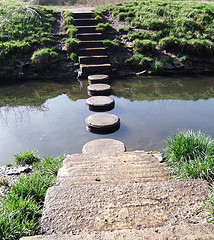When I started law school, the career services office often spoke about the value of networking, but no one really went into the nuts and bolts of how to do it. Many of my peers had little or no professional experience, so they tried to network as best they could but often made blunders, like showing up at networking events with resumes in hand expecting to get a job interview or a job offer. They weren’t taught that networking is about creating and maintaining a professional network. It’s a continuous process, not an event.
I want to share a recent experience that shows how networking works for me.
During the spring semester of my 1L at Arizona State University, the school invited author Ari Kaplan to speak at the school about how to create professional opportunities for yourself. I appreciated the fact that he encouraged people to be interesting and to stand out from the crowd. While he was still talking, I found him on LinkedIn and sent him a request to connect.
I stayed in contact with Ari. He was the person I called when I had a professional development question that I didn’t feel comfortable asking anyone at my law school because I was afraid it would hurt my reputation. Yes, despite being daring and outspoken, I’m very thoughtful about my actions.
I spent my 1L summer with the U.S. Army JAG and I got to sit in on some of the training classes for military police officers. I learned a lot about crimes that they didn’t cover during law school, like solicitation and conspiracy. As a co-founder of Improv AZ, it made me think about the ways we could get arrested just for planning a prank or flash mob.
Ari often speaks about the benefit of creating a professional niche. I sent him an email asking if he thought flash mob law was viable niche for me. He wrote me back that night. He was working on an article on creating a targeted niche for the ABA’s Law Practice Magazine. He said his article as written was dry and he asked if he could use me as an example of someone who is using his suggestions. I was ecstatic. Mark Feldman at Law Practice Magazine loved Ari’s article so much he contacted me to get pictures from Improv AZ’s flash mobs to go with it.
Ari and I regularly keep in touch, and I continue to explore my niche by writing about the legal side of various pranks and flash mobs. Having a blog, especially one with a candid approach made me stand out from my peers and opened the door to many opportunities to be a guest blogger.
Recently, I received an unexpected email from Mark Feldman. He started new venture, Attorney at Work, with his wife Joan Feldman and Merrilyn Astin Tarlton. This site provides practical information and advice on creating a law practice. They thought my writing was “wonderful,†and they invited me to bring my “undeniable Ruth voice†to their site as a monthly writer.
I’m excited to announce that starting this month, I am a contributing writer for Attorney at Work. My monthly posts will focus on the real-world technical side of lawyering.
I never expected an opportunity like this to fall into my lap, and it didn’t happen overnight. This was two years in the making through maintaining relationships, having a regular public presence, and doing consistent good work. That’s networking.





